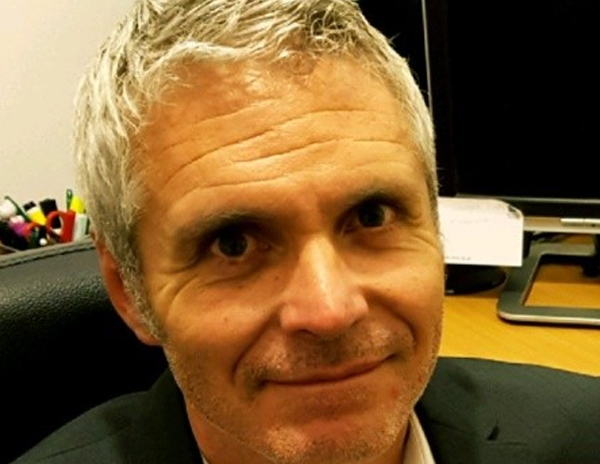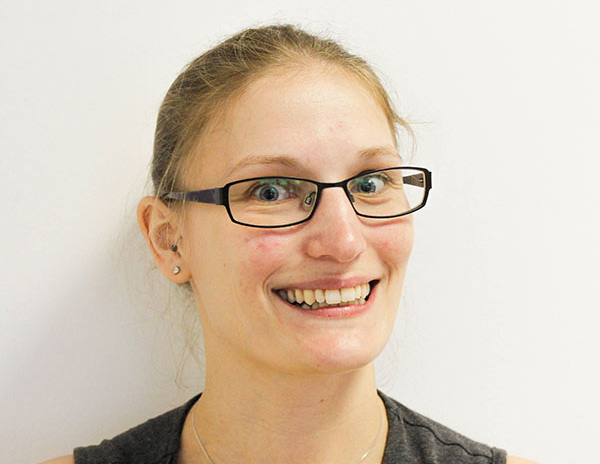Our SEMHS service contains specialist teams to support social, emotional and mental health challenges faced in education settings. Our SEMHS service is provided onsite to education settings on an individual, group and systemic level. Providing the service onsite to schools, early years settings and post-16 settings helps to increase the interaction between education staff, mental health professionals, children and young people. Child and adolescent mental health services (CAMHS) have been proven at times to be more effective when provided alongside or within school and education settings.
We have the following specialist teams within our SEMHS service:
Our Early Access Teams provide immediate access to social, emotional and mental health (SEMH) specialists who stop the escalation of preventable difficulties. Our Early Access Teams are categorised around the four main areas of need as stated in the SEND Code of Practice (2015), we have the:
Read more about our Early Access Teams.
Our School Counselling Team achieves a comprehensive and joined-up support network for children and young people within education settings. Early needs identification leads to positive outcomes and swift referrals, where necessary. Read more about our School Counselling Team.
Our Looked After Team promote the emotional, mental and physical health of children and young people with looked after status to maximise their potential. Using our Looked After Team can benefit looked after children and young people's educational needs to improve outcomes and close the gaps between their peers who do not have looked after status. Read more about our Looked After Team.
Our Adoption team works with the child, young person, school and family to maximise the life chances of children and young people who have been adopted through therapeutic support. Access to therapeutic support, improves SEMH needs and behavioural challenges to promote positive relationships. Read more about our Adoption Team.
Our Social Work in Schools Team promotes social development and independence through working with children and young people. Our Social Work in Schools Team reduces risk within education and home settings to improve the educational and mental health outcomes of children and young people. Read more about our Social Work in Schools Team.
Our School, Parent and Family Team bring home and education settings together to maximise a child or young person's potential and raise their aspirations. Read more about our School, Parent and Family Team.
EHP's Critical Incident Team supports the emotional wellbeing of all children, young people, staff and families, through providing early access to our specialist team of mental health professionals following a critical incident. Our high quality, professional support facilitates a return to daily life. Read more about our Critical Incident Team.
Our Post-16 Team prepares young people for their transition into adulthood through identifying and addressing learning and emotional needs. Immediate access to our Post-16 Team enables early intervention to support young people in progressing and reaching positive destinations in life. Read more about our Post-16 Team.
Over half of all mental ill health starts before the age of fourteen years, and seventy-five per cent has developed by the age of eighteen. The life chances of those individuals are significantly reduced in terms of their physical health, their educational and work prospects, their chances of committing a crime and even the length of their life. As well as the personal cost to each and every individual affected, their families and carers this results in a very high cost to our economy.
Future in Mind, 2015
Our SEMHS service is not an alternative for emergency intervention. If a child or young person is at immediate risk of danger of serious harm to themselves or others then please contact: Accident and Emergency (A&E), Children's health services (CAMHS), a General Practitioner, the police or a 24 hour support service.
We are also not providers of:
There is evidence that children with mental health needs are supported most effectively when there is universal provision to promote the mental health of all pupils, reinforced by targeted support for those with particular needs.
Better mental health outcomes for children and young people
In addition to working with children and young people within education settings, we can provide our services within homes and our clinic as alternative options.
Our specialist services can be accessed by education, health and other professions working with children and young people.
Our SEMHS service is based on statutory requirements and best practice advice provided by reliable sources, including the Department of Education, Department of Health, and NICE guidelines. Evidence-based practice is supported by an up-to-date rationale, taking into account the preferences of those involved and using professional judgement. Through using an evidence-based approach then we provide education settings with the best possible care and support.
The strongest evidence supports prevention/early intervention approaches that include a
focus on:
Mental health and behaviour in schools, 2016
Our SEMHS teams are made up of experienced mental health and emotional wellbeing professionals, from a variety of settings including CAMHS. Professionals include:
Other staff that work within our SEMHS teams include:
Our SEMHS service links in with the wider multidisciplinary team provided by EHP including SENCOs, specialist teachers, psychologists, therapists and health professionals. Having a wide range of professionals involved in our service allows us to effectively:
Our SEMHS teams provide an evidence-based joined-up approach to promoting positive mental health and emotional wellbeing in schools and education settings.
EHP is registered with all major professional memberships.
Schools have a vital role to play in supporting the wellbeing of their pupils. We have high aspirations for all children and young people. We want schools to develop qualities like confidence, resilience and motivation in their students. In other words, to ensure that young people are prepared for adult life. These character traits support academic attainment, are valued by employers, and support children and young people to make a valuable contribution to society.
Counselling in schools: a blueprint for the future
Our SEMHS teams are available for a range of social, emotional and mental health needs, in order to facilitate swift and effective early needs identification and intervention. Our specialist trained mental health professionals improve outcomes and maximise the potential of the children and young people we work with.
Often children and young people are referred to our service for an assessment when they have not responded to previous interventions and there are some of the following concerns:
Our SEMHS service is split into teams to provide a specialised approach to assessments, interventions, training and consultancy.
Persistent mental health difficulties may lead to pupils having significantly greater
difficulty in learning than the majority of those of the same age. Schools should consider
whether the child will benefit from being identified as having a special educational need
(SEN). Any special education provision should ensure it takes into account the views and
wishes of the child and their family.
Mental health and behaviour in schools, 2016
The children and young people who we work with come from a range of backgrounds which means that there is a lot of variation in the circumstances they are experiencing.
We commonly work with circumstances that may arise:
Examples of circumstances which may occur within the child include:
Circumstances which can occur within a family and impact on social, emotional and mental health include:
In the school there are many situations which could impact on social, emotional and mental health, such as:
Our community is diverse which means that circumstances near and far can affect social, emotional and mental health and can include issues, such as:
Through providing immediate access to our SEMHS service we support education settings with their approach to SEMH, including preventative measures.



Schools should be mindful that some groups of children are more vulnerable to mental health difficulties than others. These include, but are not limited to, looked after children, children with learning difficulties, children on the autism spectrum and children from disadvantaged backgrounds.
If it is thought housing, family or other domestic circumstances may be contributing to the presenting behaviour, notifying and working with other agencies and professionals is likely to be necessary. In all cases, early identification and intervention can significantly reduce the need for more expensive interventions or sanctions at a later stage.
Mental health and behaviour in schools, 2016
Each SEMHS team have their own selection of specialist services which can be tailored to needs.
Read more about our:
Interventions can be carried out by members of our team, or where more appropriate, we can train staff from your education setting.
In order to help their pupils succeed, schools have a role to play in supporting them to be resilient and mentally healthy.
Mental health and behaviour in schools, 2016
It is important for education staff to access specialist social, emotional and mental health training to increase their knowledge of emotional wellbeing and to equip them to be able to identify mental health difficulties in their students. This includes being able to refer them to relevant support either within the school or from external services.
We provide training and workshops on:
Each team provides specialised training and workshops specific to their area of expertise. Training is flexible to your requirements and relevant to your setting.
Our training is available on and off site for education settings and organisations in relation to health, psychology and education.
Each SEMHS team provide services on an individual, targeted and a whole school level in order to provide a comprehensive and effective service within education settings. It has been found that taking a whole school approach to social, emotional and mental health brings many benefits to children, young people and staff.
Schools and teachers have an important role to play. But, they should not be administering specialist advice or acting as the sole source of support for their students. We advocate a 'whole-school approach' to mental health. Through initial teacher training (ITT) all teachers should be trained in mental health and well-being. Current training and development for foster and residential carers in mental health and well-being is of variable quality, but when done properly is a critical part of providing looked-after children with stability and security in their placement.
Mental health and well-being of looked after children, 2015-16
Schools would normally access our SEMHS services if they have:
Problems with a specific child such as:
EHP's SEMHS teams provide comprehensive support packages for social, emotional and mental health needs. Packages can be bespoke according to the needs and requirements within the education setting.
Academic success has a strong positive impact on children's subjective sense of how good they feel their lives are (life satisfaction) and is linked to higher levels of wellbeing in adulthood. In turn children's overall level of wellbeing impacts on their behaviour and engagement in school and their ability to acquire academic competence in the first place.
The link between pupil health and wellbeing and attainment, 2014
Our SEMHS professionals can identify children and young people with possible mental health and emotional wellbeing difficulties in addition to providing interventions which use a graduated approach as advised in the SEND Code of Practice.
We help all education settings to develop a sustainable approach to recognising and promoting the health and wellbeing of all children and young people so that the desired outcomes can be achieved. Our SEMHS teams help to establish a clear process of 'assessing, planning, doing and reviewing' so that desired outcomes can be reached.
SEMHS provides education settings with a screening package, which can be carried out by a member of education staff, or a member of our team. Prior to our involvement we provide a free initial discussion service where we listen to requirements and advise on various options and packages. Written information about each service is available.
We reduce the effects of mental health problems by supporting children and young people in becoming more resilient and, therefore, preventing problems before they escalate. In circumstances when we would need to refer on then our referrals will contain thorough information to support a strong referral to external services.
Children and young people's mental health really matters, not only for the individual and their family, but for society as a whole. The evidence tells us that treating different, specific health issues separately will not tackle the overall wellbeing of this generation of children and young people. Their mental and physical health are intertwined, and at the heart of health and wellbeing are their relationships with others. They want an integrated child, youth and family friendly approach that recognises their particular needs, makes them feel supported, emphasises the positives and helps them to cope.
Future in Mind, 2015
Anyone within the education setting can refer to SEMHS. In education settings we will usually liaise with the SENCO, Inclusion Manager or pastoral team when taking referrals. We are also happy to receive referrals from clinical commissioning groups (CCGs) and local authorities to meet their needs.
To refer to EHP's SEMHS service please email office@ehp.org.uk.
Alternatively please complete our request form.
If you would like to speak to someone about your particular requirements please get in touch and one of our team would be happy to assist you.
Our services can be funded through a variety of ways.
Following referral we will arrange a convenient date and time for one of our experienced mental health professionals to visit your education setting. We will ask that you gain consent from the child or young person's parents / carers at the time of referral for initial assessment and subsequent input. The referral form will make us aware of any relevant risk factors or issues surrounding the child or young person we should be aware of so an appropriate plan can be formed.
Our specialist multidisciplinary services can be commissioned through a service level agreement and as standalone input.
If you would like to find out more about the services we offer or to book a free initial discussion then please contact us on email office@ehp.org.uk
EHP © Copyright 2025. ALL Rights Reserved.
Part of Tx Group

At EHP we thrive on feedback. We're happy to hear that this page has been helpful to you, would you like to leave some feedback?
At EHP we thrive on feedback. We're sorry to hear that this page wasn't what you where looking for, how can we improve this service?
At EHP we thrive on feedback. We're sorry to hear that there was something on the page you found unsatisfactory, how can we improve this?




